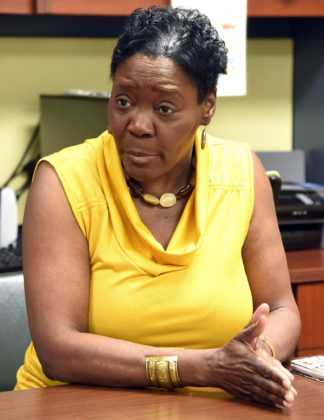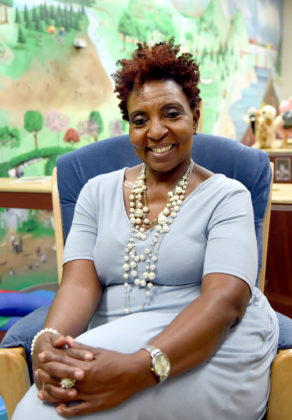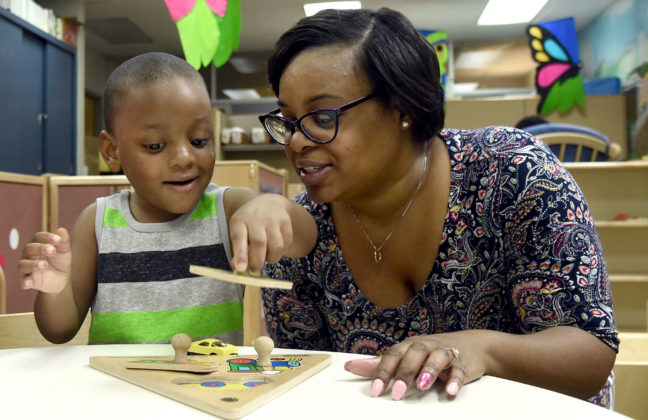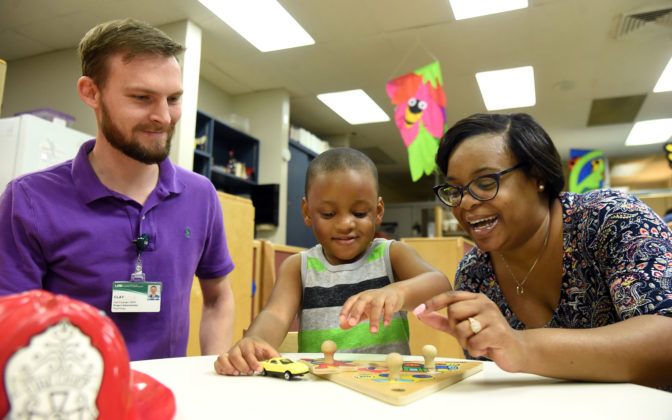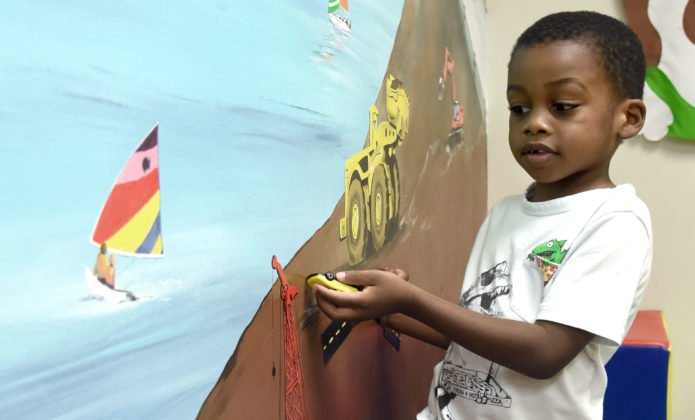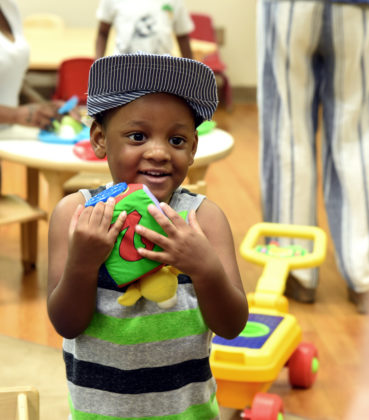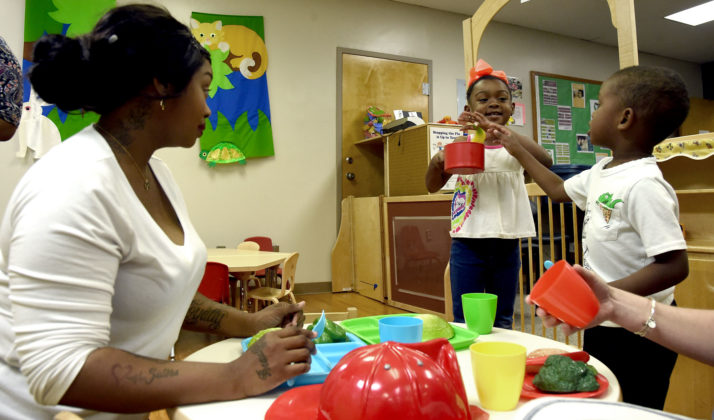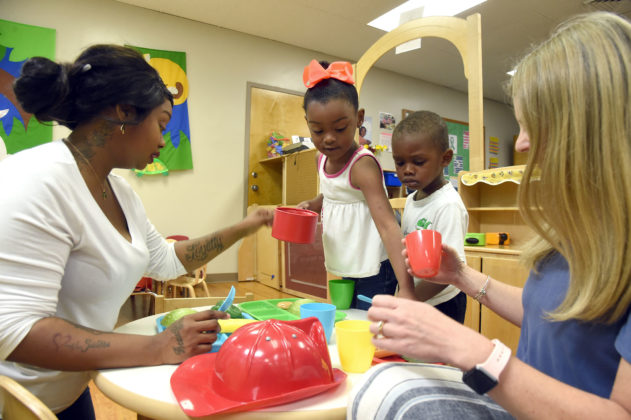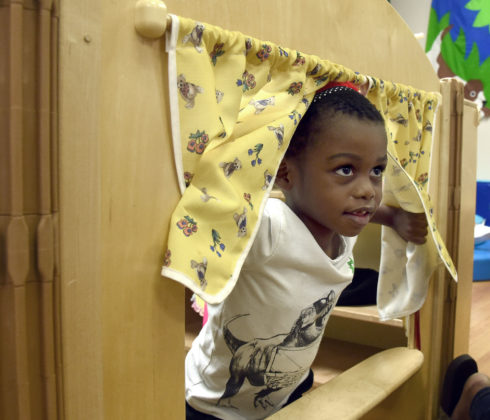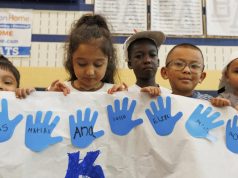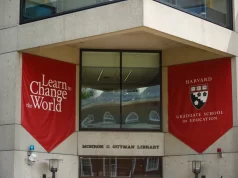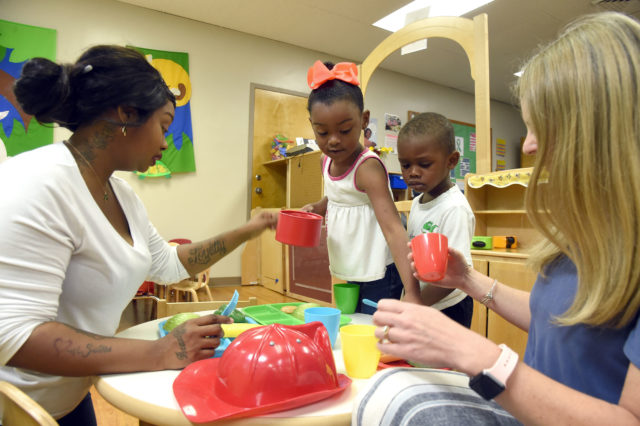
By Erica Wright
The Birmingham Times
The staff at the University of Alabama at Birmingham (UAB) Early Head Start Program doesn’t consider what they do as hard work — they consider it “heart work.”
“I identify on so many levels with parents [of children in the program] … because I am the one that goes out into the community and into homes to talk to parents and listen to what’s going on,” said Vikki Forte, UAB Early Head Start Family and Community Services Coordinator.
UAB Early Head Start is a home-visiting, family-focused, child-development program that serves pregnant women and children, birth to 3 years of age, in Jefferson, Walker, and St. Clair counties. The program also provides information to families about other community resources, such as adult education, vocational training, housing, and substance-abuse services.
“I believe if you reach one, teach one,” Forte said. “If we can get children while they are young and in their natural habitat, and we can teach moms and get them to buy into the early-childhood-education piece, … there are some things we won’t have to teach [the children] when they get older because they already learned it while they’re young. We see more successful children in school.”
The program’s mission is to form partnerships with families to support child development and family goals through continuous training and professional development. Currently, it serves about 88 children: 80 through the home-based service and eight at child-care center in Walker County.
“Any service that you would get in a classroom, we do it in the home,” said Forte. “We have a lesson plan, and we write out where the child should be each week.”
The program uses a curriculum called “Partners for a Healthy Baby,” which focuses on motor, cognitive, and language skills, as well as provides social and self-help skills to older children and mothers.
“The children come [to the office at UAB], and we find out where the child is developmentally,” Forte said. “Then we assign the child a home visitor, [which] we call a ‘family partner.’”
Not a Day Care
UAB Early Head Start is not a day care, Forte said.
“The uniqueness of our program is that we … provide services in the home,” she said. “We’re not there to keep your children. We’re there to empower [parents] to be the first teachers of [their] children. We want to give mom those skills provided in a day care center, so she can do them all week.”
A family partner is in place as long as the family is in the program and qualifies for a regular Head Start program.
“When the child turns 3, we ask the parents, ‘What do you want to do? Do you want [your child to] go to day care, Head Start, or stay at home?’ It’s whatever the family wants to do,” said Forte.
Priority is given to pregnant moms: “We really like to get them while they’re pregnant, so they [and their children] can be in the program for the full three years,” she said.
Forte said it’s important to talk to moms about their goals. “So, if I meet a family and they’re going through some domestic things, or they need adult education, or whatever, we try to meet them where they are individually. [If there’s a need for] adult education or if mom is a teen, … we work on helping her finish school. We work on whatever needs to be done to help her to be the first teacher of her child,” said the program coordinator.
Ebony Marshall said she learned instructional skills that have benefitted her 3-year-old son. “I’m his teacher every day, all day,” she said. “I use every opportunity to teach [my son]. If he’s eating Skittles, I teach him how to count and [identify] the colors.”
Disability Services
All Head Start Programs are mandated to serve 10 percent of children with disabilities, said Kristi Guest, UAB Early Head Start Program Disability Services Coordinator.
“We work to make sure children get the services they need to address their disabilities, either through early intervention or through the school system,” she said, adding that disabilities can range from language problems to those on the autism spectrum scale.
Guest, who has been with the program for the past 20 years, said she does all the screening to make sure children are doing what they’re supposed to in terms of development.
“If we see an area in which [the child] is not doing well and there might be some concerns, … I can talk to the family about intervention services … their child may qualify for,” she said.
Family Partners
UAB Early Head Start home visitors, or family partners, go into households each week for about an hour and a half to help parents provide high-quality learning experiences, promote secure parent-child relationships, and support family well-being. They also collaborate with parents to identify interests, needs, and goals and help them work toward their desired outcomes.
Family partner Renee Fisher said, “My goal is to help them help themselves. I’m there to help them with their goals.”
A typical home visit for Fisher begins with planning a curriculum and discussing it with the family. First, she asks the parent what they want to work on.
“They may tell me their child is not walking or crawling, and they would like to work on that,” Fisher said. “Sometimes they might have specific needs …, so my job is also to help them meet those needs.”
Progress Noticeable
Both Guest and Fisher said progress is noticeable.
“Development just happens, in general, so there’s a lot in terms of child development that happens from birth to 3 years old,” said Guest. “They go from not saying anything to speaking in full sentences by the time they’re 3. … We help facilitate [that progress].”
Fisher, who has been a family partner for nearly 24 years, said, “Our families and our parents know when their kids are learning, and … we help them with that process … because a lot of times they complete milestones and don’t even know it.”
After more than two decades of working with families, Fisher said she enjoys helping parents help their children achieve developmental milestones.
“I’m just there to assist them and encourage and support them with their children,” Fisher said. “What we usually teach is that families are the best teachers and first teachers of their children.”
To learn more about the UAB Early Head Start Program, visit http://www/uab.edu/civitansparks/uab-early-head-start-program or call 205-934-5736 or 205-934-5505.



